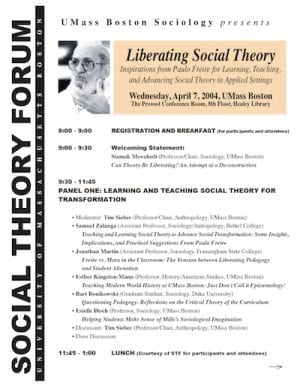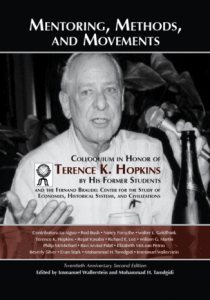Proceedings Journal Article — Marx, Arendt and Habermas on Common Interests and Public Action: Reflections on the Modern Indian State — by Kelli Joseph
$15.00
In their writings, Karl Marx, Hannah Arendt, and Jürgen Habermas explore the potential for human fulfillment and human freedom in the political realm of the modern world. Describing the historical circumstances making this space unique, Marx, Arendt, and Habermas focus on public action as the key to the creation and realization of communal human interests.
Description
Abstract
In their writings, Karl Marx, Hannah Arendt, and Jürgen Habermas explore the potential for human fulfillment and human freedom in the political realm of the modern world. Describing the historical circumstances making this space unique, Marx, Arendt, and Habermas focus on public action as the key to the creation and realization of communal human interests. All three writers identified aspects of modern society that make such public political action more difficult. The economic system of capitalism has profoundly altered our understanding of political and social life. Marxrecognized this and began a dialogue about human freedom under such a system, to which Arendt and Habermas have responded. Their theoriesaddress problems within modern Western societies and responses to their writing have assessed the relevance of their work within other parts of the world. The purpose of this paper is to assess aspects of each of their theories and to critically assess the relevance of their ideas about the historicaldevelopment of the public realm within the democratic state of India.
Recommended Citation
Joseph, Kelli. 2004. “Marx, Arendt and Habermas on Common Interests and Public Action: Reflections on the Modern Indian State.” Pp. 81-94 in Liberating Social Theory: Inspirations from Paulo Freire for Learning, Teaching, and Advancing Social Theory in Applied Settings: Proceedings of the First Annual Social Theory Forum, April 7, 2004, UMass Boston (Discourse of Sociological Practice, Vol. 6, Issues 2, Fall 2004). Issue Guest Editor: Mohammad H. Tamdgidi. Sociology Department, UMass Boston.
Read the Above Publication Online
To read the above publication online, you need to be logged in as an OKCIR Library member with a valid access. In that case just click on the large PDF icon below to access the publication. Make sure you refresh your browser page after logging in.






